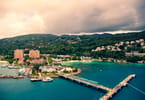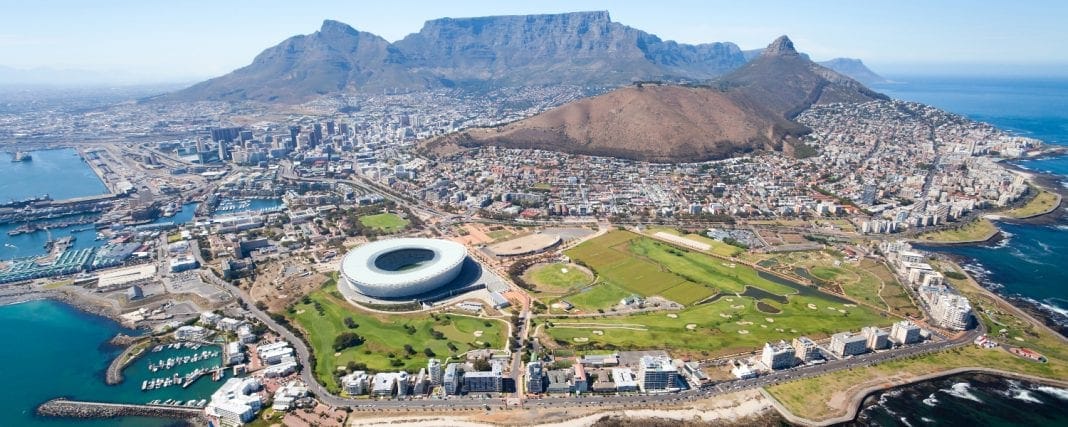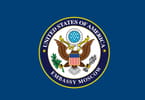116 cases of COVID-19 put South Africa into the medium-low category for Coronavirus. The South African Government is not taking any chances and President Cyril Ramaphosa declared a national state of disaster effective today. So far no death was associated with the outbreak of coronavirus in South Africa.
The regulations, which form part of the Disaster Management Act, were signed off by Cooperative Governance and Traditional Affairs Minister Nkosazana Dlamini-Zuma on Tuesday and published on Wednesday. MSC Cruises has offered the South African government a ship to assist with services relating to the coronavirus.
Tourism, an important industry for the Republic of South Africa most likely is now coming to a stillstand like in most countries in the world
Here are the most important sections of the regulations published earlier on the South Africa News 24 channel.
1) Duty of ministers
Each government department has its own role to play as set out in the regulations. For example, the minister of health can procure the services of retired health professionals, non-governmental organizations or employees of the Expanded Public Works Programme to assist him in combating Covid-19.
Amid panic buying and necessities flying off the shelves, the minister of trade and industry is to maintain the supply of goods and services, as well as fair pricing on these necessities.
All ministers, within their mandate, are permitted to take “any other steps” to alleviate the effects of Covid-19, the regulations say.
National organs of state must also make available personnel to be used in emergency services.
National, provincial and local institutions must also make available resources, above and beyond funding, to implement these regulations but without affecting their service delivery.
2) Punishable offenses
The regulations also place preventative responsibility on South Africans, criminalizing certain conduct that could hinder these efforts.
It is illegal for a person to hide the fact that they or anyone else are infected with Covid-19, and this could be punishable with a fine or imprisonment.
It is also illegal for anyone to intentionally spread fake news about Covid-19, those infected with the virus or government efforts to address the virus.
A person who intentionally exposes someone else to Covid-19 could also be charged with assault, attempted murder or murder.
3) No refusals
Anyone who tests positive for Covid-19 is suspected of having Covid-19 or who has been in contact with someone who is infected with the virus may not отказываться to be admitted for a medical examination or into a medical facility. They also cannot refuse treatment or quarantine in a bid to prevent the spread of the virus.
A warrant in this regard can be issued by a magistrate.
4) Liquor restrictions
Premises selling liquor such as taverns, restaurants or clubs, are to be closed immediately, the regulations say, unless they accommodate no more than 50 people at a time if space and hygienic conditions are provided.
No special or events liquor licenses will be considered during this time either, and premises selling liquor must be closed by 18:00 on weekdays and Saturdays, and 13:00 on Sundays.
5) Implementation of regulations
The regulations governing the national state of disaster comes into effect when they are published in the Government Gazette. This means that from Wednesday measures talked about by the government to address the deadly Covid-19, was implemented.
South Africa is a country on the southernmost tip of the African continent, marked by several distinct ecosystems. Inland safari destination Kruger National Park is populated by big game. The Western Cape offers beaches, lush Winelands around Stellenbosch and Paarl, craggy cliffs at the Cape of Good Hope, forest and lagoons along the Garden Route, and the city of Cape Town, beneath flat-topped Table Mountain.
What is a national State of Disaster in South Africa?
The 2002 Disaster Management Act facilitates co-ordination, mitigation and recovery following a disaster, defined as a “natural or human-caused occurrence that causes disease, damage to property infrastructure or the environment or disruption of the life of a community”.
In a national disaster, Section 26 of the act makes the national executive “primarily responsible” for coordinating measures for mitigation, prevention and recovery and rehabilitation from disaster.
Cabinet ministers may use existing legislation to deal with the disaster; health, immigration, transportation, and other legislation allow ministerial directives.
But regulations, which are the responsibility of the co-operative governance minister, can provide for a range of further measures. However, crucially, the Disaster Management Act releases money and resources from vehicles to emergency personnel for the effort to deal with a declared disaster.
How is the State of Disaster declared in South Africa?
In terms of Section 27 of the Disaster Management Act, it’s the co-operative governance minister.
The president under Section 4(1) establishes, in the case of a national disaster declaration, an intergovernmental committee on disaster management to co-ordinate efforts. The president chairs this committee.
Section 27(2) allows the issuing of regulations that not only provide relief to affected persons but also for the control in the affected areas of the movement of people and goods, the provision, use or control of emergency accommodation and the sale of alcohol.
A national State of Disaster lasts three months. However, the co-operative governance minister may cut it short at any time. A national State of Disaster may be extended one month at a time.
What is the State of Emergency in South Africa?
In short, civil liberties, with exceptions like the rights to dignity and life, are suspended for anything from 21 days to three months, and possibly longer.
Unlike the apartheid decades, Section 37 of the Constitution and the 1997 State of Emergency Act provide a crucial supervisory role for Parliament. And the courts are constitutionally empowered to decide whether a State of Emergency or regulations are valid.
Meanwhile, Parliament is constitutionally prohibited from passing laws “indemnifying the state, or any person, in respect of any unlawful act”, as Section 37 of the Constitution also sets out the rights of detained persons, including being able to contact an adult relative or friend and be visited by medical and legal practitioners of the detainee’s choice.
How is the State of Emergency put in place in South Africa?
Section 37 of the Constitution allows a State of Emergency to be declared only when
“(a) the life of the nation is threatened by war, invasion, general insurrection, disorder, natural disaster or other public emergencies; and
“(b) the declaration is necessary to restore peace and order.”
In terms of the 1997 State of Emergency Act, the president makes this declaration. Parliament is informed of this and also of any regulations the president signed to empower any structure or person to perform duties, and also impose penalties.
Importantly, Parliament has to agree to those regulations in terms of Section 3(2) of the State of Emergency Act, which states Parliament may “disapprove” of any such regulations, while also making recommendations to the president.
In terms of Section 37(2) of the Constitution, 21 days is how long a State of Emergency may last – unless Parliament extends it, to a maximum of three months.
A simple majority of MPs is needed for this, but if there should be another extension of the State of Emergency, a parliamentary majority of 60% is required. And there must be a public debate.
Pretoria in South Africa is also the Headquarters for the African Tourism Board (ATB) eTurboNews is a strategic partner for ATB.
ЧТО ВЫНУТЬ ИЗ ЭТОЙ СТАТЬИ:
- The 2002 Disaster Management Act facilitates co-ordination, mitigation and recovery following a disaster, defined as a “natural or human-caused occurrence that causes disease, damage to property infrastructure or the environment or disruption of the life of a community”.
- Anyone who tests positive for Covid-19 is suspected of having Covid-19 or who has been in contact with someone who is infected with the virus may not refuse to be admitted for a medical examination or into a medical facility.
- It is illegal for a person to hide the fact that they or anyone else are infected with Covid-19, and this could be punishable with a fine or imprisonment.






















